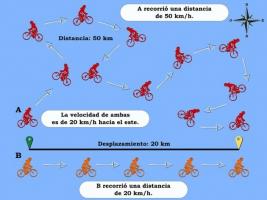Difference between formal science and factual science
The formal science have as their object of study abstract ideas and factual science they study the facts of nature. Science in general is a body of ideas characterized by rational, systematic, exact, verifiable, and fallible knowledge.
The factual sciences deal with propositions like "kinetic energy depends on mass and speed" that are justified through observation and experimentation. The formal sciences resort to the type of propositions of the type "every number with a zero exponent is equal to one", which are independent of experience.
| Formal sciences | Factual science | |
|---|---|---|
| Definition | Sciences that are in charge of the study of subjective abstract entities. | Sciences that are responsible for the study of objective facts of nature. |
| Object of study | Ideals | Material facts |
| Statements | Relations between signs. | Relationships between events and processes. |
| Method | Inductive inference. | Observation and experimentation. |
| Examples | Mathematics, logic, computer science. | Physics, chemistry, biology, sociology, economics. |
What are formal sciences?
Formal or exact sciences study ideas, that is, they do not refer to anything found in reality. They are rational, systematic and verifiable, but they are not objective, they do not give us information about reality, they do not deal with the facts. They are about ideal entities that only exist in the human mind and not in reality. The proper subject of formal science is the form of ideas.
Characteristics of formal sciences
- They deal with symbols and the relationships that can be established between them, without the need to resort to experience to obtain results.
- They demonstrate or prove.
- It is self-sufficient: they build their own objects of study as an abstraction of real objects, such is the case of geometric figures and integers.
- It uses the analytical formulas, that is, to formulas that can be validated by means of simple rational analysis.
Formal science example
Math

Mathematics is the science of numbers, quantities, and spaces. His object of study are ideas, a product of human imagination.
What are factual sciences?
The factual or empirical sciences study the events that occur in nature. They deal with the facts and events that occur in the world and that we can know through experience.
The word "factual" derives from Latin factum which means "done". It is based on observation and experimentation to generate scientific knowledge.
Characteristics of factual sciences
- They verify hypotheses: factual science starts from a previous doubt to which a possible explanation or "hypothesis" is given.
- Has a passive and active character: Observation is passive in nature, this refers to the fact that observation is the main source of data for the scientist. Through experimentation, the scientist controls the phenomena that he wants to actively study.
- It is quantifiable: uses mathematical resources to quantify, measure, and translate natural phenomena.
- Use the formulas: can contain analytical formulas and synthetic formulas.
Types of factual science
Within the empirical or factual sciences there are two groups:
- natural Science: these study the natural, physical and chemical phenomena that constitute the Universe. Physics, biology, astronomy, chemistry are natural sciences.
- social sciences: those disciplines that study phenomena related to human beings, their behavior and interaction. Within these sciences are psychology, sociology and economics.
Example of factual science
biology

Biology is the science that is responsible for the study of living things. As such, it encompasses a diversity of fields such as ecology, botany, zoology, microbiology, among others.
You may also be interested in:
- Natural Sciences and Social Sciences
- Classification of the sciences


